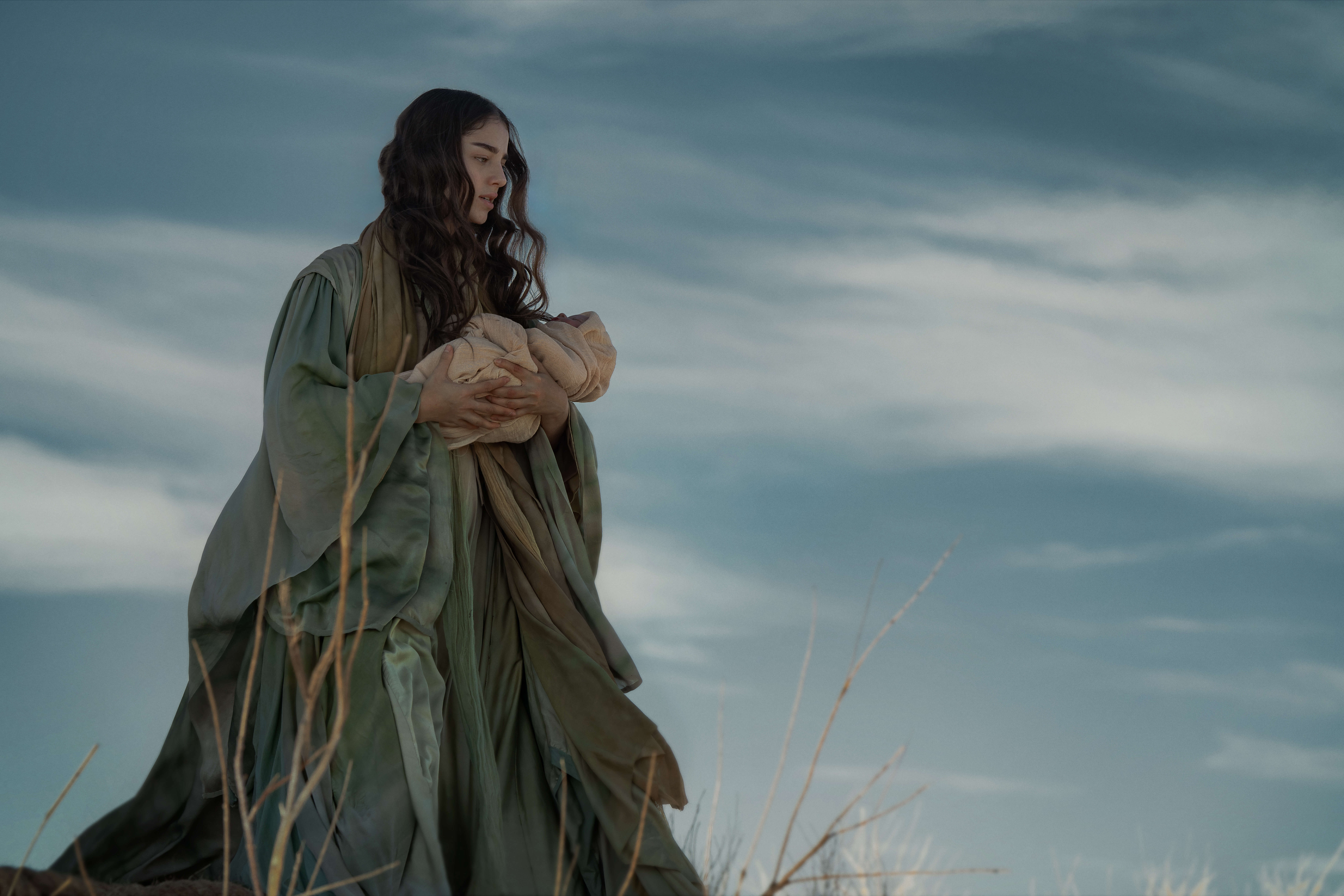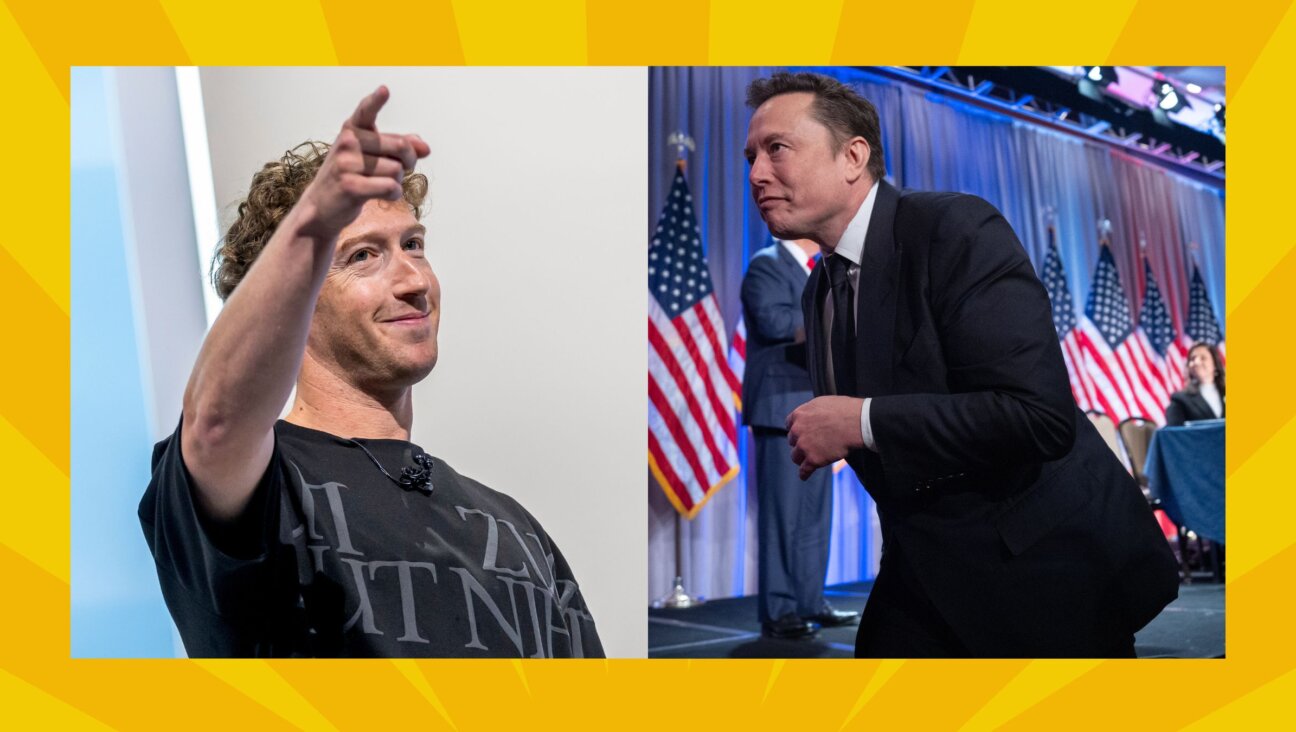The Stars Toast Elie Wiesel on His 75th
Tom Brokaw, master of ceremonies at the Anti-Defamation League’s 75th birthday celebration gala for Elie Wiesel, got the simkha off to a memorable start by declaring: “I’m your shabbes goy.” Among the more than 700 black-tie Wiesel fans were Lily Safra, Richard Ben-Veniste, Ted Koppel, Cynthia Ozick, Kati Marton, George Schwab, General Wesley Clark, and Sister Rose Thering.
Following ADL National Chair Barbara Balser’s greetings, New York State Senator Hillary Rodham Clinton declared herself “lucky to be a friend of Elie’s and [his wife] Marion’s.” There were poignant readings by John Voigt, Ellen Burstyn and Lynn Redgrave, as well as a sparkling rendition of an excerpt from Massenet’s opera “Thaïs,” by violinist Joshua Bell.
“Speaking on behalf of my wife, Nane, and myself,” Kofi Annan, United Nations secretary general, lauded “Elie’s wisdom” and “his books about the Holocaust, [which] raise awareness of the plague of antisemitism.”
ADL’s national director, Abraham Foxman, welcomed Wiesel in Yiddish: “Tayerer, liber fraynd, novi, lerer (Dear friend, prophet, teacher).… None of us [survivors] has an answer to why we survived. [But] we — especially the survivors — know why you survived.…You have given voice to those who’ve been silenced….You questioned God, yet remembered him every day…. When you speak, the world listens.”
In a riveting keynote address, Ambassador Richard Holbrooke recalled a 1995 conference in Krakow, Poland, the day before the marking of the 50th anniversary of the liberation of Auschwitz. “Elie and I were co-chairmen — the official U.S. delegation,” he said. There were leaders from 15 nations including then president of Germany Roman Herzog, and another Nobel Peace Prize winner, Poland’s Lech Walesa. Walesa’s speech, noted Holbrooke, referred to the martyrs and victims of Auschwitz “but would not mention the fact that over 90% of those… sent to the gas chambers were Jews… .To say that Elie objected would be an understatement! I have never seen a private citizen… so completely overwhelm… presidents… prime ministers.… What Elie said was simple: These ceremonies must be faithful to the historic truth — the victims were Jews… Kaddish must take place.” Holbrooke described Walesa’s bewilderment and hostility. “But Elie would not relent…. He simply declared that there would be no statement and no Elie at the ceremonies the next day if the truth were not made clear…. Walesa caved in…. As the wind whipped from the east… two rabbis intoned the heart-breaking words the occasion required.”
“The Jew in me always wanted to be a matchmaker,” said Wiesel. “To bring together men and women of different religions to show we are all descendants of Adam and Eve.… What else can I say? I offer questions, never answers.”
And, in what will be remembered as a transcendent happening, the Waldorf-Astoria’s ballroom seemed to morph into an East European shtibl as Wiesel, accompanied by the Zamir Chorale conducted by Matthew Lazar, sang a wrenching version of ani maamim (“I believe”) on key and with eyes closed. I later overheard a man ask Wiesel: “Do you really believe in God…in ani maamim?” Wiesel, visibly shaken, did not look at the questioner. He stood up, leaned forward on the table and, in a whisper, replied, “Yes, I believe.”
* * *|
At the May 17 Kraft Center for Jewish Student Life, Columbia/ Barnard Hillel Seixas Award dinner at Columbia’s Lerner Hall, Robert Kraft, owner of the New England Patriots and benefactor of the center bearing his name, introduced honoree Harvey Krueger.
Alon Pinkas, Israel’s consul general in New York, told the 300 guests (among whom were New York Times chairman, Arthur Ochs “Punch” Sulzberger; president of Columbia University, Lee Bollinger; Forward Association Manager Samuel Norich; and federal judge Miriam Goldman Cederbaum): “I don’t think most of you realize the scope and scale of Harvey’s invaluable contribution to Israel’s economy… [and] Jewish identity.”
Krueger, vice chairman of Lehman Brothers Inc. (whose roster of plaudits includes board member of the American Jewish Joint Distribution Committee, past chairman of the board of governors of Hebrew University in Jerusalem, and visiting professor at the University of Strathclyde in Glasgow, Scotland) said modestly: “I came from Hackensack High School to Columbia, [where] the world opened up… I give back what I can, and it’s never enough.” Also honored was Judith Shapiro, president of Barnard College, the first woman to receive the Seixas award.
Prof. Robert Pollack, a past president of Columbia/Barnard Hillel and from 1982 to 1989 [the first Jewish] dean of Columbia College, expounded on the Seixas award. Named after Gershom Mendes Seixas — hazzan of New York’s Shearith Israel synagogue, the first American-born Jewish clergyman and a trustee of Columbia College — it is “bestowed on those who have made outstanding contributions to Jewish life at Columbia University.”
Seixas was born in 1746; his father was a Portuguese converso and his mother was the daughter of Moses Levy, a leader of early New York Jewry. A leading patriot, he refused a British order that his congregation pray for King George III. Seixas participated in George Washington’s presidential inauguration; on the plaque in his memory at Shearith Israel is engraved: “patriot rabbi of the American revolution.”
Karen Leon contributed to this column.
A message from our CEO & publisher Rachel Fishman Feddersen

I hope you appreciated this article. Before you go, I’d like to ask you to please support the Forward’s award-winning, nonprofit journalism during this critical time.
At a time when other newsrooms are closing or cutting back, the Forward has removed its paywall and invested additional resources to report on the ground from Israel and around the U.S. on the impact of the war, rising antisemitism and polarized discourse.
Readers like you make it all possible. Support our work by becoming a Forward Member and connect with our journalism and your community.
— Rachel Fishman Feddersen, Publisher and CEO






















